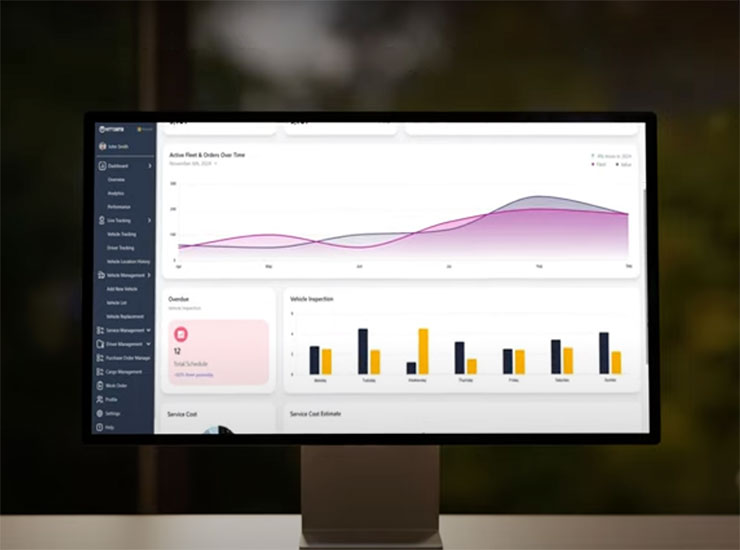-
Featured services
2026 Global AI Report: A Playbook for AI Leaders
Why AI strategy is your business strategy: The acceleration toward an AI-native state. Explore executive insights from AI leaders.
Access the playbook -
Services
View all services and productsLeverage our capabilities to accelerate your business transformation.
-
Services
Enterprise Networking
-
Services
Cloud
-
Services
Consulting
-
-
Services
Data and Analytics
-
Services
Infrastructure Solutions
-
Services
Global Data Centers
-
Services
CX and Digital Products
-
Services
Application Services
-
-
Services
Digital Workplace
-
Services
Business Process Services
-
Services
Generative AI
-
Services
Cybersecurity
-
Services
Enterprise Application Platforms
![]()
Accelerate outcomes with agentic AI
Optimize workflows and get results with NTT DATA's Smart AI AgentTM Ecosystem
Create your roadmap -
-
-
Insights
Insights
Recent Insights
-
The Future of Networking in 2025 and Beyond
-
Using the cloud to cut costs needs the right approach
When organizations focus on transformation, a move to the cloud can deliver cost savings – but they often need expert advice to help them along their journey
-
Make zero trust security work for your organization
Make zero trust security work for your organization across hybrid work environments.
-
-
![]()
2026 Global AI Report: A Playbook for AI Leaders
Why AI strategy is your business strategy: The acceleration toward an AI-native state. Explore executive insights from AI leaders.
Access the playbook -
-
Discover how we accelerate your business transformation
-
About us
CLIENT STORIES
-
Liantis
Over time, Liantis – an established HR company in Belgium – had built up data islands and isolated solutions as part of their legacy system.
-
Randstad
We ensured that Randstad’s migration to Genesys Cloud CX had no impact on availability, ensuring an exceptional user experience for clients and talent.
-
-
CLIENT STORIES
-
Liantis
Over time, Liantis – an established HR company in Belgium – had built up data islands and isolated solutions as part of their legacy system.
-
Randstad
We ensured that Randstad’s migration to Genesys Cloud CX had no impact on availability, ensuring an exceptional user experience for clients and talent.
-
![]()
2026 Global AI Report: A Playbook for AI Leaders
Why AI strategy is your business strategy: The acceleration toward an AI-native state. Explore executive insights from AI leaders.
Access the playbook -
- Careers
Topics in this article
Imagine a virtual customer-service agent that not only responds to queries but also learns from each interaction to improve future responses. Or an inventory management system that keeps an eye on sales data and automatically orders stock when levels are low.
This is the power of agentics, where AI (including GenAI) and automation meet to create virtual agents that can perform tasks or solve problems without human intervention.
These agents are typically triggered by events, not by manual instructions. They can perceive, reason and act autonomously in their environment, making decisions, learning from experiences, adapting to changing circumstances and interacting with users or other systems.
What is the Microsoft Azure AI Foundry Agent Service?
Microsoft has already launched Copilot for Microsoft 365 to inject GenAI into its popular, cloud-based suite of productivity and collaboration tools, along with prebuilt, out-of-the-box Copilot agents. Now, Azure AI Foundry Agent Service is set to open the door to an even higher level of innovation, as developers can build their own agents in Azure AI Foundry.
Azure AI Foundry Agent Service integrates machine learning and natural language processing to simulate human-like interactions. They can streamline your business operations by automating tasks and helping users across a range of applications.
These agents rely on retrieval-augmented generation (RAG) AI models, which combine the strengths of retrieval-based and generative-based approaches to improve the accuracy of generated responses. They first retrieve relevant information from a large dataset or knowledge base, then use that information to generate a coherent and contextually appropriate response.
This means agents can be trained on private corporate knowledge bases and across different datasets that would previously have been hard to connect.
- ALSO READ → Agentic modeling is shaping the future of GenAI
Putting AI agents to work across the business
Improving customer experience is a prominent use case for AI agents, particularly in sectors like retail and banking that want to offer round-the-clock customer support through natural, conversational exchanges. These agents can work 24x7 and don’t get bored with answering the same frequently asked questions, over and over again. They can troubleshoot customer issues on the spot by drawing on your organization’s corporate knowledge base and then recommend ways to remove the most common issues with process improvements and automation for better customer experiences.
Agents can also speed up software development (with fewer errors) by giving developers smart coding assistance. They can assist with code generation, debugging and code optimization, and automate testing and documentation processes. This allows developers to respond faster to shifting project demands without compromising the quality of their output.
Project management is another area where agents shine. They help with project planning, task management and resource allocation to keep to a project timeline, encourage collaboration among team members and improve the overall project outcomes.
In addition to single-agent systems, multiagent systems can be highly effective in complex environments. Here, multiple interacting intelligent agents work collaboratively or competitively to provide a more comprehensive solution than a single agent can. I logistics, for example, one agent might handle inventory management while another optimizes delivery routes.
Scaling seamlessly to support human teams
Every industry has business processes that can be analyzed and automated or improved by a smart agent. When you use agentic AI to automate repetitive tasks like data entry and report generation, you free up your employees to instead focus on more strategic and creative projects.
Smart agents can help here, too: for example, they can analyze sales data, generate technical documentation, perform language translations or summarize long documents to extract essential information.
Beyond automation and content creation, these agents also generate an uninterrupted stream of valuable, data-driven insights. They identify patterns and trends in vast datasets to inform your strategic planning and decision-making. They can even measure public sentiment toward your products or brands.
And what if your business expands? Smart agents can manage increasing workloads without needing additional infrastructure or manual intervention – a cost-effective way of avoiding business disruptions.
Using smart agents for sector-specific tasks
In addition to these more broadly applicable use cases, smart agents can be used successfully for specific tasks in various sectors.
In logistics and transportation, they can automate compliance documentation and check adherence to import and export regulations, reducing the risk of penalties. They can also track shipments and vehicle status to give logistics providers better visibility of their operations, and improve route planning and fuel consumption by analyzing live traffic conditions.
For example, NTT DATA’s Track and Trace Logistics Management Application has been developed for manufacturing, automotive and logistics clients. Built with industry cloud components and GenAI, it gives fleet and logistics managers a dashboard that gives them immediate insight across their supply chains – from tracking goods and identifying missing documents to automatically preparing, generating and verifying the compliance-related documentation required for each shipment.
Topics in this article
Watch a demo of the Track and Trace Logistics Management Application
In healthcare, AI agents can assist in medical diagnoses by analyzing patient data and medical images, or expedite drug discovery by investigating vast biological datasets. Additionally, they can develop personalized treatment plans based on patient data.
In financial services, agents can play a crucial role in fraud detection as they can identify suspicious transactions by analyzing data patterns. They can also assess investment risks by watching market trends, and execute trades based on complex algorithms and real-time data.
At NTT DATA, we’re committed to supporting our clients across these and other industries with our Industry Cloud Platform, which features over 500 prebuilt components that support industry use cases to minimize cost, raise productivity and deliver time-to-value gains.
Deploying agents with NTT DATA
NTT DATA is well-positioned to guide our clients through the deployment of Azure AI Foundry Agent Service. As a long-standing Microsoft partner, we are named a Leader in the 2024 IDC MarketScape report for Worldwide Application Modernization Services to Azure, a testament to our expertise in Azure.
We’re already using automation and agents to help our clients in areas such as code generation, testing and deployment, and to automate routine IT tasks like incident ticket creation and initial responses, among other applications.
We work closely with our clients to define their business goals for smart agents. We then identify use cases and develop tailored deployment strategies.
Based on these strategies, we select and configure the right Azure resources for scalability and security. We use Azure’s AI services and tools in Copilot Studio to build custom AI models for our clients.
Our expertise extends to creating conversational interfaces, integrating them with existing systems and deploying agents into production. We then provide ongoing management, performance monitoring and updates while helping organizations follow ethical and regulatory guidelines.
Take the next step
As a global leader in digital transformation, we’re committed to giving you a competitive edge in the market with the help of Microsoft Azure AI Foundry Agent Service.
Join us on our journey of innovation as we explore the abilities of these smart agents.





